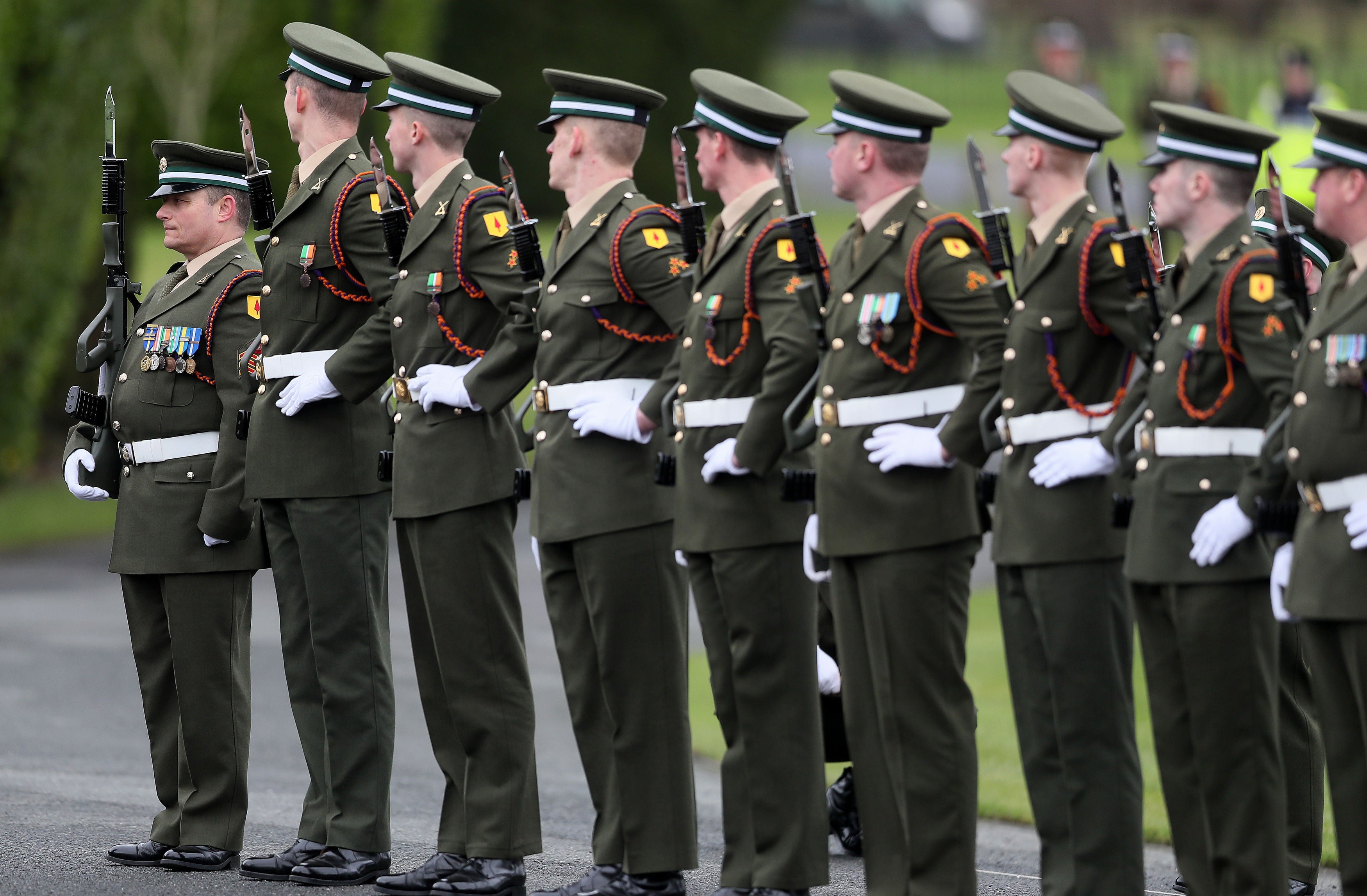Defence Forces ‘crisis may leave Ireland without credible military capability’
A commission spent more than 13 months compiling the report, and received 480 submissions.

Your support helps us to tell the story
From reproductive rights to climate change to Big Tech, The Independent is on the ground when the story is developing. Whether it's investigating the financials of Elon Musk's pro-Trump PAC or producing our latest documentary, 'The A Word', which shines a light on the American women fighting for reproductive rights, we know how important it is to parse out the facts from the messaging.
At such a critical moment in US history, we need reporters on the ground. Your donation allows us to keep sending journalists to speak to both sides of the story.
The Independent is trusted by Americans across the entire political spectrum. And unlike many other quality news outlets, we choose not to lock Americans out of our reporting and analysis with paywalls. We believe quality journalism should be available to everyone, paid for by those who can afford it.
Your support makes all the difference.Continuing “business as usual” in the Defence Forces will leave Ireland without a credible military capability to protect the country, its people and its resources for any sustained period, a report has warned.
The Commission on the Defence Forces considered the Irish army’s capabilities, structures and staffing, in a report published on Wednesday.
The commission members spent more than 13 months compiling the report, and received 480 submissions and spoke to 1,000 Defence Forces personnel of all ranks.
The report said many reported a “strong sense of crisis” in the Defence Forces, with one immediate cause being understaffing.
“While there is a recognition amongst Defence Forces personnel that the organisation faces issues and challenges, it is clear that there is also a serious desire for change at all levels,” the report stated.
It said this underlined a need for “urgent action”.
The report said the Defence Forces would need time and space to “transform and modernise”, but that change is essential and implementation cannot be put off.
It said change needs to be “pursued relentlessly”, with strong external and parliamentary oversight, and will require external expertise.
The commission set out three levels of ambition and warned that “business as usual” would leave the country unable to meet its desired level of military deployment overseas and weak on it capabilities.
The report also warned it would leave the Defence Forces unable to conduct a “meaningful defence” of the state against a sustained act of aggression from a conventional military force.
Maintaining the status quo would be likely to require a reduced commitment to international peace support, crisis management and humanitarian operations due to capacity constraints.
The commission also warned that current battalions do not align to Nato standards and are understaffed and underresourced.
It said there is an “urgent need” to restructure the army into a more agile and flexible force that can meet current and future operational tasks.
The report said the Defence Forces would need to almost triple its spending to develop full defence capabilities to protect Ireland and its people.
“These significantly stronger capabilities would also allow for a deeper engagement in international peace and humanitarian missions and would deliver benefits in terms of aid to the civil power (ATCP) and aid to the civil authority (ATCA) capacity,” the report added.
What we have now is a very credible, hard-hitting, honest report that actually calls out a whole series of things that the Government now needs to find a way of responding to
Minister for Defence Simon Coveney accepted “virtually everything” in the report.
He described it as the most significant report in relation to defence in the last 50 years.
“We expected them to come back with some very challenging findings and recommendations. And that is certainly what’s happened here,” Mr Coveney told RTE.
“What I need as Minister for Defence, in order to make a case to cabinet to significantly increase the resources for the defence sector, I knew and I know that I need a report of this importance and detail to be able to make that case.
“That is why, in the programme for government, we agreed to put this commission in place.
“So what we have now is a very credible, hard-hitting, honest report that actually calls out a whole series of things that the Government now needs to find a way of responding to.
“It’ll certainly take me four or five months to work with Government colleagues.”
Independent TD and former Army Ranger Cathal Berry said the report has the potential to be transformational, but only if it is fully funded and fully implemented by the Government.
Chief of staff of the Defence Forces, Lieutenant General Sean Clancy said he will analyse the contents and recommendations in the reports.
“The level of public and institutional engagement, with almost 500 public submissions throughout the process, demonstrates the ever increasing importance of defence to the institutions and citizens of the state,” he said.
“Once this report has been accepted by government, the hard work implementing its recommendations will commence.
“The process of implementation is a marathon, not sprint.
“The Defence Forces will need time and space to develop a plan of action to implement the recommendations that are accepted by government.
“In order to do this, we need to be adequately resourced, plans without resourcing are unattainable.
“However, I’m confident that the report will ensure that the Defence Forces remain an agile, flexible and adaptive organisation capable of responding to future changes to the security environment and responding to new emerging threats.”